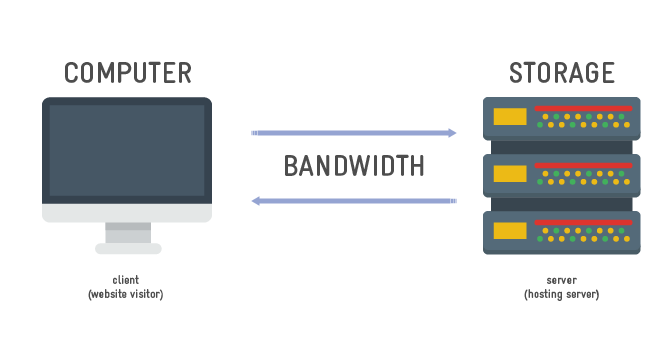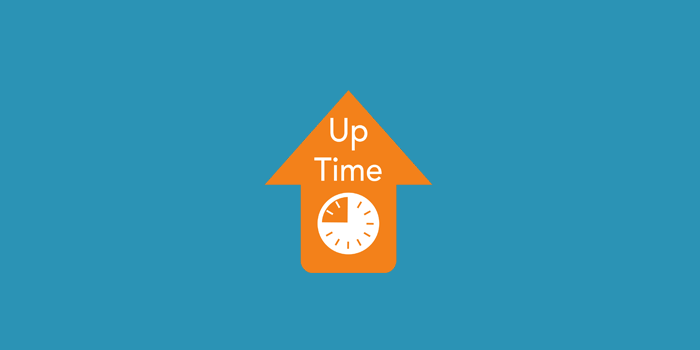Web hosting is the creation of a virtual location on a web server. All the files in your website will then be stored on the server and can be accessed by internet users. Below are 10 web hosting tips to help you choose the right kind of web hosting.
Tip 1: Know What Type of Hosting You Need
There are different types of web hosting which differ in control, technical knowledge, storage capacity, reliability and server speed. Some of the different types of web hosting include shared, dedicated, virtual private server (VPS) and cloud hosting among others.
- Shared Server Hosting
Shared hosting is where you share storage space with multiple other websites, either hundreds or thousands of websites. You will share the same server thus sharing resources such as CPU and RAM. Shared hosting is ideal for small websites or those that are coming up.

- Dedicated Server Hosting
This type of hosting gives you full control of the server and your website will be the only one stored on the server.
Full administrative access will be accorded to you thus giving you the power to control most of the things including the operating system used and the security measures used.
This type of hosting is suitable for those with high traffic to their website. It is one of the most expensive types of web hosting.
- Virtual Private Server (VPS) Hosting
VPS hosting is both shared hosting a dedicated hosting. A physical server is shared but the virtual server is like a dedicated server that hosts your website only.
VPS hosting is suitable for advanced users who want more control of the server but do not have the technical knowledge to operate a dedicated server. Those who may not be able to invest in a dedicated server due to financial constraints can also choose a VPS.
- Cloud Hosting
This type of hosting enables clients to store their websites on virtual servers. Combined computing resources are used thus promoting scalability. Resources used are spread through multiple servers, reducing the chances of network downtime. A managed cloud server is a great option for anyone who does not have a great deal of IT knowledge.

It is important to know which type of web hosting to choose for your business since the performance of your site is dependent on this. The wrong choice could lead to wasted funds and crashing of your website in some instances.
Tip 2: Cost
The cost of a web hosting service is dependent on functionality. Cheap web hosting services will offer little control and functionality of the server.
Costly hosting services usually offer more in terms of functionality. Most will give you full control of the server and a lot of resources such as storage space, high speed and reliability,
Tip 3: Test Customer Support
The effectiveness and speed of customer support is important in case your website is ever compromised. You would want the situation to be handled fast and as soon as possible to prevent further damage than what has already been done.
Settle for a hosting service that offers live support to their clients 24/7. Social media visibility and chat support should be a priority. Avoid those that offer chat support tickets and emails as they may not respond fast enough if you have a problem.
You can test out a service by contacting their customer care with various questions at different times of the day. Determine whether they are suitable by how fast they respond and how knowledgeable they are about the issue.

Tip 4: Bandwidth
Bandwidth is the amount of data you use on your website. When considering which hosting service to use, choose one that offers a slightly higher bandwidth than what your site consumes.
Choosing a service with low bandwidth may lead your site to crash since the data exceeds what you have been accorded by your hosting service. On the other hand, choosing a service that offers very high bandwidth that you do not need is wastage of money.
Tip 5: Security Features
The hosting service you choose should have security measures to prevent malicious attacks in order to keep your information secure and prevent any loss.
Look for a hosting service that offer SSL certificates in case any sensitive data needs to be delivered. Ensure they have firewalls, malware scanning removal, and an antivirus. Backups should also be available to guarantee your website information does not get lost in case of any technical issues.

Tip 6: Server Reliability and Uptime
Reliability and uptime are important as it influences your site’s viewership. Unstable networks can render your site unavailable by pushing it offline thus robbing you of viewership and sales. Your rankings on search engines may also drop.
Settle for a hosting provider that is reliable with uptime scores of at least 99 percent.
Tip 7: Server Speed
The speed of the server is vital and can influence your website’s user experience. Ensure the responsive server speed is very high. Slow speeds will lead to low viewership which can damage your search engine optimization (SEO) efforts. Most internet users have no time to wait for slow sites to load. Make sure you have a SEO friendly website, by increasing your server speed by choosing the correct host.
Tip 8: Refund Policy and Free Trial Period
Review the refund policy of a hosting provider before choosing a particular provider. Some providers offer a money back guarantee in case you are not pleased with their services. However, some sites charge you high cancellation fee.
To avoid such problems, it would be best to choose hosting providers who offer a free trial period. This enables you to know what to expect when you pay for their services.

Tip 9: Check Customer Reviews
One of the best ways to know whether a hosting service is efficient or not is by checking the customer reviews. Reading them will give you insight on how effective the provider is and what challenges users are facing.
Tip 10: User Friendly Control Panel
Choose a hosting provider that offers a user-friendly control panel with several options to choose from. This gives you the freedom to easily customize your site to suit your needs.
Some service providers limit the changes you can make, prompting you to go through customer support. This is time-consuming and overly restrictive. Avoid such hosts if you want to have an easy time running your site.
Conclusion
Choosing the right web hosting provider is vital for your business. It can affect your site viewership, ranking on search engines, and the amount of revenue you will earn. Ensure you carefully consider all the important factors before settling for a particular web hosting provider.
